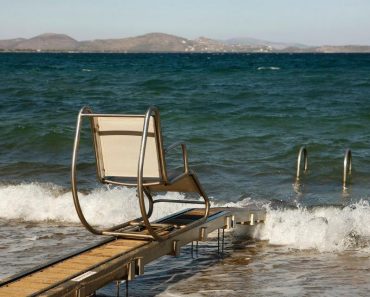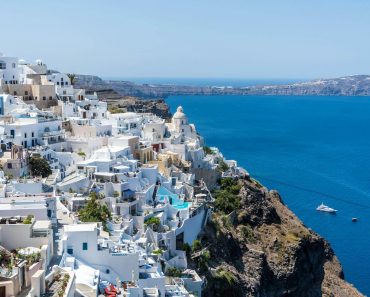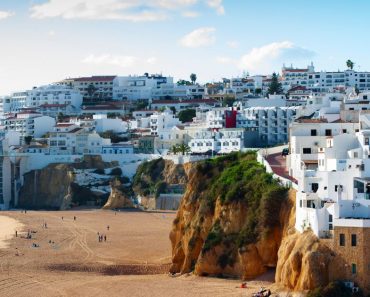Thursday, February 13, 2025

Since the beginning of the year, Santorini, a Greek island known for its iconic views and crystal-clear waters, has been shaken by thousands of earthquakes. These tremors have raised concerns about the potential decline in tourism during the upcoming holiday season, a critical period for the island’s economy. Santorini is one of Europe’s most popular tourist destinations, attracting thousands of visitors each year. However, with the recent seismic activity, there are fears that the island may experience a significant drop in the number of tourists, which could severely impact its local economy.
Impact on Tourism and Travel Operators
The frequent earthquakes on Santorini have caused a ripple effect within the local tourism industry. The island’s growing reliance on tourism has made it vulnerable to any disruptions. One cruise operator, sensing the instability, has already decided to avoid the island in the coming months. Industry professionals have expressed concern that the tremors might discourage tourists, leading to a reduction in bookings. There was a noticeable drop in reservations over the last few days, and although some are hopeful that this will be short-term, others are more skeptical about the season’s success.
Experts, who have been closely monitoring the situation, admit that they cannot confidently predict when the earthquakes will stop. The uncertainty surrounding the duration and intensity of the seismic activity has left both travelers and tourism operators anxious about the future. The tremors have created a level of instability that could deter people from booking trips to the island, especially for those who prefer to avoid uncertain conditions.
Challenges for Local Workers and Businesses
Tourism has been a major economic driver for Santorini over the past decade, with an increasing number of Greeks and international visitors flocking to the island. However, the island’s booming tourism industry has also led to some social tensions. Local residents have voiced concerns about the strain tourism has placed on public services and the local housing market, where property prices have soared due to high demand.
One local worker, Manos, who has been a bartender on the island for five years, expressed his concerns about the potential downturn in tourism. Although he was not particularly worried about the earthquakes themselves, he feared that a drop in visitor numbers could lead to reduced employment opportunities for workers like him. In a region where seasonal work is crucial, Manos felt that the risk of fewer tourists meant that he might not make enough money, or even be employed for the entire summer season. As a result, he made the difficult decision to accept a job offer in Corfu for the holiday season rather than returning to Santorini.
In addition to the impact on employment, the construction industry on the island has also been affected. Santorini usually experiences a slowdown in construction during the winter months, but the earthquakes have further delayed projects. Hotel owners have put planned construction on hold due to the uncertainty around future visitor numbers, leaving workers concerned about delayed payments and wages.
The Strain on Infrastructure and Government Response
The challenges for Santorini are not just economic but also infrastructural. The island relies on a steady influx of workers to support its tourism sector. During the peak season, around 70,000 workers and 160,000 visitors are on the island daily, which puts immense pressure on the existing infrastructure. One hotel owner pointed out that while the government had taken swift action in response to the earthquakes, there had long been calls for improvements to the island’s infrastructure, such as the construction of a new port to handle the increased demand.
The government has deployed emergency crews to Santorini in case of a major earthquake, but some tourism industry professionals believe that more proactive measures are necessary. Proposals have been submitted to support both the current workforce and those looking to work during the high season. Without adequate support, local businesses and workers may struggle to stay afloat during a season that is already unpredictable.
Santorini’s Economic Significance to Greece
Santorini is not only vital to its own local economy but is also a crucial component of Greece’s overall economic health. The island contributes significantly to the country’s Gross Domestic Product (GDP), accounting for approximately 2.5% of the total annually. The total revenue generated by tourism on Santorini is around £4.9 billion, making it one of Greece’s most important economic assets. Any decline in visitor numbers could have far-reaching consequences not only for local businesses but also for the broader Greek economy.
With the holiday season approaching, Santorini’s tourism sector faces an uphill battle. While the government and local authorities have been working to mitigate the effects of the earthquakes, the uncertainty surrounding the situation makes it difficult to predict how much the tourism industry will be impacted. The island’s reliance on seasonal tourism means that any drop in visitors will have a direct effect on employment, income levels, and local businesses.
The Future of Santorini’s Tourism Industry
The series of earthquakes that have shaken Santorini in 2023 have raised serious concerns about the future of the island’s tourism industry. While experts cannot predict when the tremors will stop, their impact on local businesses, workers, and the economy is already being felt. Santorini’s reliance on tourism makes it particularly vulnerable to any disruptions, and the uncertainty surrounding the situation could deter potential visitors.
As the island braces for the upcoming holiday season, both local workers and business owners are left with uncertain prospects. The government’s response to the crisis will be critical in determining whether Santorini can recover from this seismic challenge and maintain its position as one of Europe’s most popular tourist destinations.








